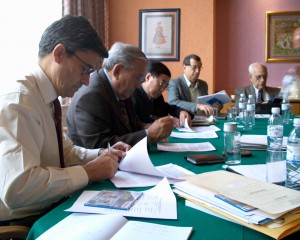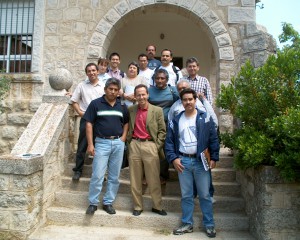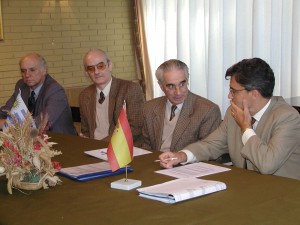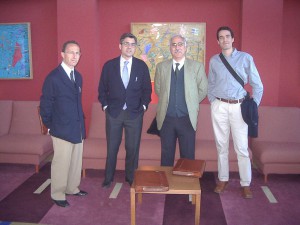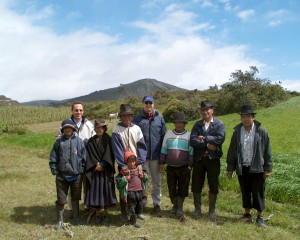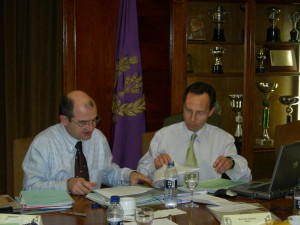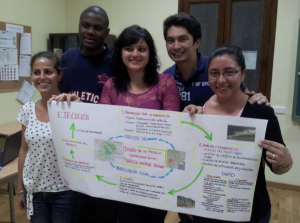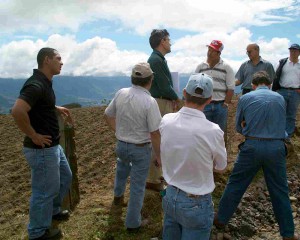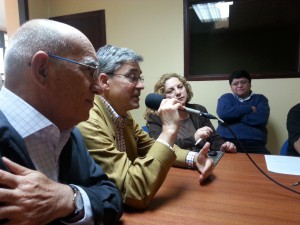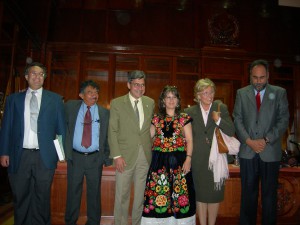A process is a collection of interrelated actions and activities that take place in order to achieve a set of previously specified products, results or services. The project team is in charge of executing the formulation, evaluation and project management processes. The processes (tasks and activities) have clear dependencies and are done following the same sequence in each project. They are independent from the area of application approaches. These groups of processes consider the multidimensional nature of formulation, evaluation and project management.
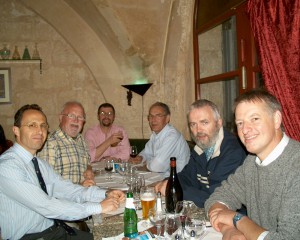
Rural Development Project Formulation & Evaluation Processes
The project formulation & evaluation process can be defined as a system that manages information, very complex in some cases, with a systematic approach of interrelated phases, and applying different planning instruments that allow to execute the project design’s concrete tasks. These processes are formed by five phases or stages that incorporate the main activity areas; from initial debates about the idea of the engineering project, to the presentation of a complex plan that has to be managed and executed. The activities respond to a logical structure according to the formulation and evaluation phases of the project. The development of the Project subjects is basically a learning process directed to show methodologies that consist of organic processes in which phases and concepts are linked to one another.
1. Preparation for Project Formulation
The Preparation of the Formulation phase (1) or what is the same, the elaboration of a good proposal of former projects, can be divided into three sections: a) the establishment of the formulation team and the necessary resources (financial, administrative and logistics); b) Terms of Reference writing; c) Project plan preparation for the execution of formulation activities.
2. Analysis and Diagnosis
In the DIAGNOSIS AND ANALYSIS phase (2) interpret the diverse aspects of the specific situation with the project team. During this phase, the teams receive training to do with research and analysis techniques, in order to perform the data collection (quantitative and qualitative) and exam (analysis) and to determine the main causes of the situation (diagnosis). At the end of the phase, each team has to indicate possible proposals to better the actual situation and answer the question: Has what has to be done in the project situation been understood?
3. Project Design
Taking as reference the conclusions achieved during the analysis and diagnosis phase, the teams proceed in the DESIGN phase (3) to a more detailed and precise project creation, in order to come up with an inversion proposal. Every team has to proceed by putting emphasis on the system, product and technology viability verification. Also they have to define the structure of the organization of the project, its programming in time, managing dispositions, resources and cost and benefit estimations. The main question to answer at the end of this phase is: Are we sure that we know how to make this project work?
4. Results Assessment
During the MULTI-CRITERIA Assessment phase (4) the effects and impacts that may happen to the project during execution will be examined. The results of this phase should guide the viability -technical, economical, financial, social and environmental- of the project. During this phase, the following competence element will be specially dealt with: resources, cost and finance, business, security, environment and ethics.
5. Project Document
The latest phase in PROJECT DOCUMENTAT, where all deliverables are found and the report is presented. The synthesis capacity is essential to be able to properly communicate -before external agents and colleagues- the information and issue a project judgment.
